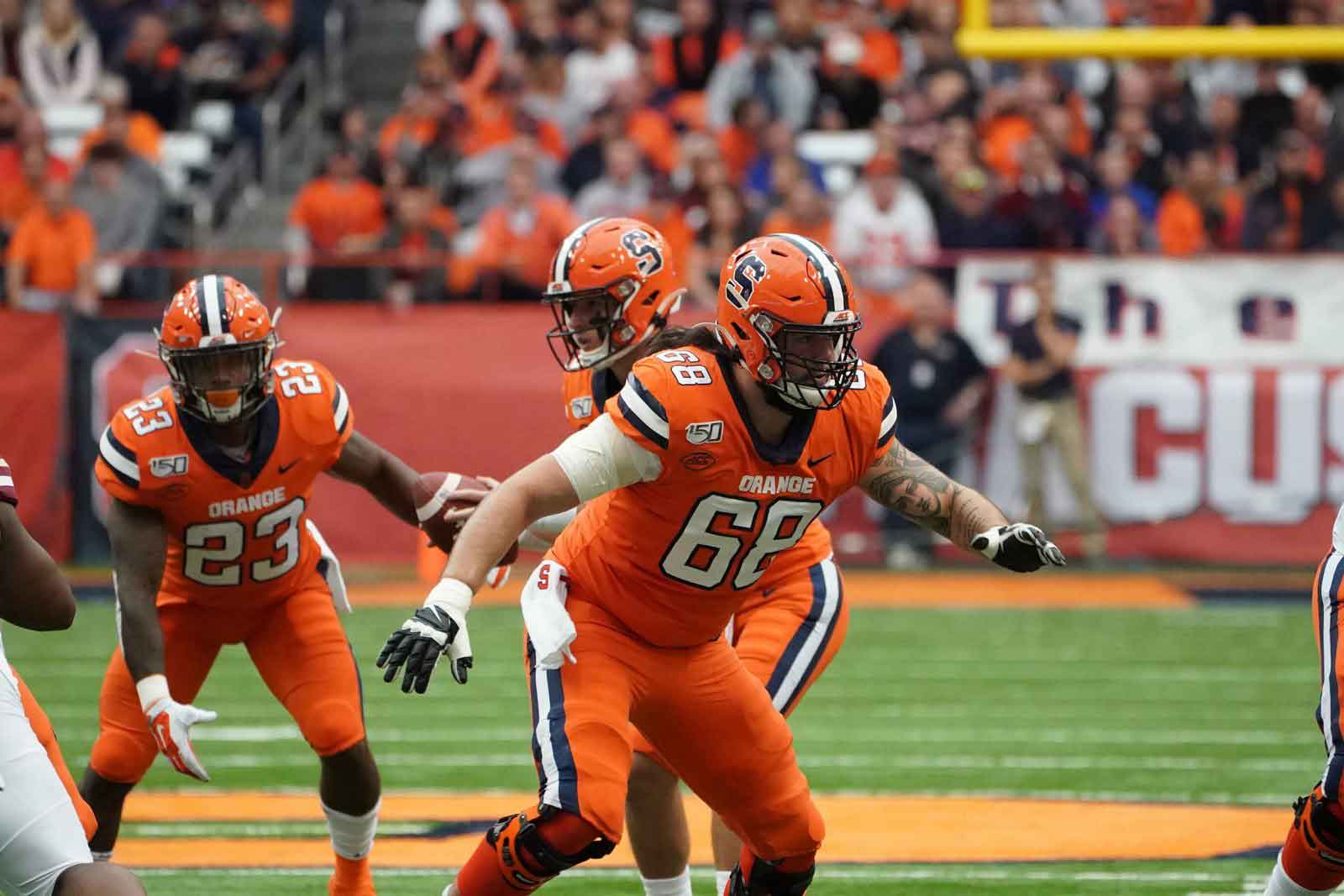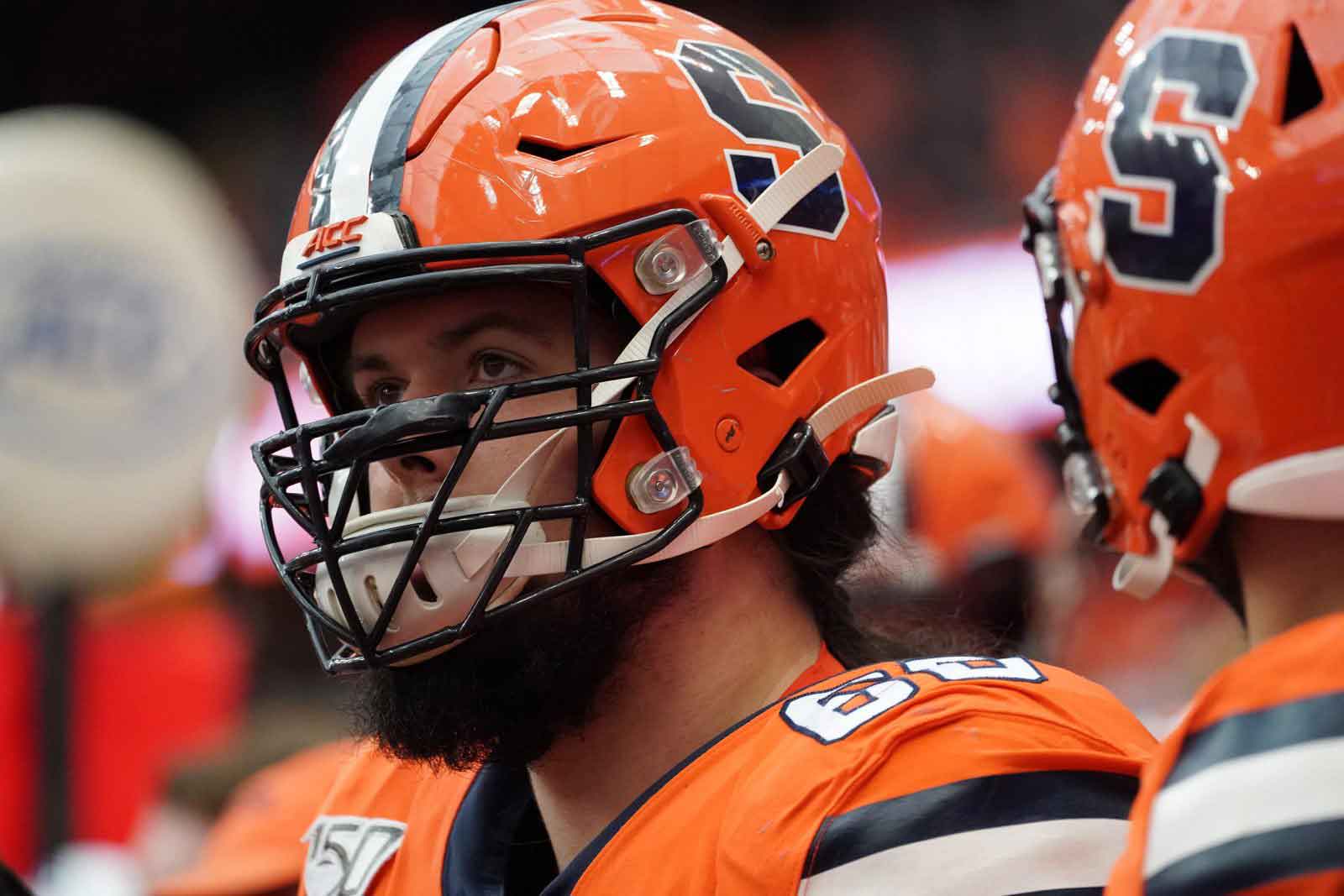
Offensive lineman Airon Servais ’19, G’21 has a knack for reading patterns—whether scanning a defensive formation before the snap or solving the Rubik’s Cube in less than a minute. “I’m all about recognition and reaction, in football and in life,” says the redshirt senior, brandishing a backward baseball cap and low ponytail.
The first recruit of the Dino Babers era, the 6-foot-6-inch, 291-pound tackle has proven himself a durable leader—a muscular combination of speed, grit and power. Servais’ commitment to protecting his quarterback’s blind side is vital to the team’s up-tempo spread.
Duke found this out last fall, when Servais switched from center to left tackle. He not only helped the Orange run that day for a season-high 286 yards but also cemented his status as a formidable pass blocker. The offensive co-captain finished 2019 with an impressive 940 snaps and 47 knockdown blocks.
“As a tackle, I’m able to flash my athletic ability,” says the Green Bay native, who has started every game of the past four seasons. “I don’t have to be as vocal as when I’m at center, making calls and adjustments, but I still need to be cognizant of what the entire defense is doing at all times.”
Servais’ exemplary leadership and on-field production were recognized in his receipt of the 2019 Ben Schwartzwalder Award, named for Syracuse’s legendary Hall of Fame coach. But don’t let the hard-nosed stereotype fool you. Fans are often surprised to learn that when Servais is not reading a 4-3 or 3-4 front, he usually is poring over books about how the body reacts and adapts to exercise. Pursuing a master’s degree in the Falk College, Servais is considering multiple career options, including teaching, personal training and chiropractic medicine.
Not that the 2021 NFL draft is off the table.
“It’s important to have a Plan B,” admits Servais, who earned a bachelor’s degree in health and exercise science from Falk in 2019. “Much of what I do in the classroom translates onto the field and vice versa.”

The son of “incredibly smart” parents, Servais discovered mathematical structure in the fifth grade with the Rubik’s Cube. Creating patterns on it came easily to him, but he waited until high school to solve the cube on his own.
One weekend, a friend gave him a crash course. “I typed all the algorithms into my phone and then practiced them for four hours,” recalls Servais, stroking his goatee. “That first day, I finished the cube in about three minutes.” His current record is 38 seconds.
Servais also can recite the alphabet backward and rattle off the first 30 digits of Pi. “I’m a pretty good yo-yoer and skateboarder, too,” he beams. “Proper training means combining physical and mental fitness with lots of practice. It’s made me a good student-athlete and has helped us win football games.”
An SU story by Rob Enslin originally published on September 22, 2020.
